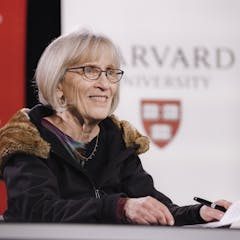
Articles on Nobel Prize
Displaying 1 - 20 of 224 articles

Songwriting, theatre, rap and graphic novels have won literary awards, but video games remain an overlooked part of the wider literary canon.

Remembering his immense contributions to psychology and economics.

Former US secretary of state, Henry Kissinger has died, aged 100. His legacy, including his involvement in the Vietnam war, is long, complicated and divisive.

Studies reveal women’s research receives tougher assessment, less funding, fewer prizes and less citation than men’s.

Louis Brus explains some of the foundational research – and how even the letter carrier wants to shake your hand when you’ve just won a Nobel Prize.

Louis Brus, one of the newest Nobel laureates in chemistry, speaks to The Conversation Weekly podcast.

The goal of mRNA technology is to harness the power of the cell to potentially prevent infections and treat diseases.

Japanese and English readers have read Murakami in quite different contexts and chronologies.

Goldin is showing the world that economics is about more than just finance.

Narges Mohammadi is the second Iranian woman, after Shirin Ebadi, to win the Nobel Peace Prize. She remains locked up in Evin, Iran’s most notorious prison for political detainees.

The prize has gone to a Norwegian playwright and novelist whose work examines the lives of ordinary people on the outer reaches of society.

For Jon Fosse, the fourth Norwegian to win the 2023 Nobel Prize in Literature, writing has been a way of surviving.

Some Nobel Prize-winning ideas originate in strange places, but still go on to revolutionize the scientific field. George de Hevesy’s research on radioactive tracers is one such example.

The discussions in the committee are always open, frank and sometimes emotional, but never hostile.

Quantum dot technology has also helped revolutionise medical imagining.

Quantum dots are a prime example of the way nanotechnology engineers materials at an atomic scale.

The aura of a major literary prize will inevitably fade. What we are left with is the work itself.

The 2023 Nobel Prize in physics recognized researchers studying electron movement in real time − this work could revolutionize electronics, laser imaging and more.

L'Huillier was busy teaching when she her Nobel prize was awarded.

Three scientists won the 2023 Nobel Prize in physics for their work developing methods to shoot laser pulses that only last an attosecond, or a mind-bogglingly tiny fraction of a second.
